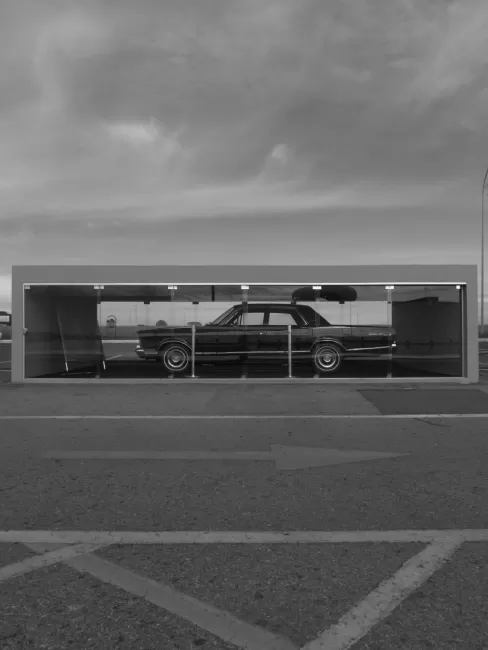Ford Galaxie
His political agenda was called “Fifty years of progress in five” and his administration launched immense public programs including the construction of major highways, hydroelectric facilities, and public buildings. To stimulate industry, tariffs were increased, foreign exchange was revised to aid importation of needed capital, and credit from the Banco do Brasil and the National Economic Development Bank became liberally available.
The country’s productive capacity soared and Brazil became a major industrialized nation. The most impressive program he oversaw, however, was the construction of an entirely new capital, Brasilia, 700 miles into the wild interior of the country. Once asked why he built Brasilia, Kubitschek laconically answered that he needed a place to which he could build roads. Brasilia therefore was the perfect alibi to deliver broad infrastructure to the underdeveloped parts of the country and was successfully inaugurated within only four years, just three months before the end of his presidential term.
In addition to this information, which is heroically displayed by the scenographic magnitude of Niemeyer’s architecture, at the memorial one can find an original mockup of Kubitschek’s office. This leaves the impression that he left the building and forgot his glasses on the table just minutes ago.

The awkward feeling from a strange mixture between a majestic mausoleum and a voyeuristic peepshow is completed when one leaves the building and finds Kubitschek’s last car, a 1973 Ford Galaxie, sitting in an abandoned parking lot, fully enclosed by glass. It is as if Damien Hirst poured formaldehyde into a garage he had mistaken for Snow White’s coffin.
The original advertisement by the Ford Motor Company in 1959, announced the Ford Galaxie as heralding the point in automobile production when nothing remained exclusively for the rich. The car had a strong, modern body which offered a new level of comfort. The upholsteries were so costly that they were matched by few cars at any price level, the interiors were richly paneled, the air was regulated by a silent-flow ventilation system, and light permeated through the doors, ashtray, glove box, and trunk. In fact, this car had everything but the price tag of a luxury car.
The description of the Ford Galaxie’s interior strangely recalls Edgar Allen Poe’s description of his beloved wife’s coffin in his gothic novel The Fall of the House of Usher. Similar to Poe’s wife, Juscelino Kubitschek seemed alive when we entered the memorial museum. In fact, his ghost is present throughout Brasilia, a city which seems to suffer from apparent death. Everything is exactly 50 years old, a freeze frame that is the same age as Kubitschek’s car.
The car does not need to be seen as a symbol for the new capital and its former president. However, on August 22, 1976, Juscelino Kubitschek died in a car accident near the city of Resende in the state of Rio de Janeiro. In a Ford Galaxie.